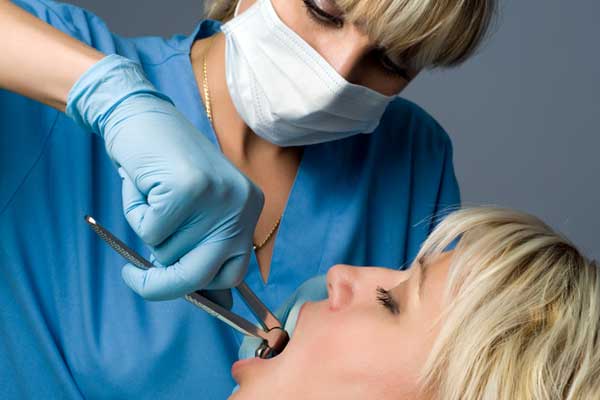Wisdom tooth extractions
Dr. Cheng Zhu of Pleasant Hill Dental in Pleasant Hill, California, is a dedicated professional who offers solutions for patients who require general, cosmetic, and restorative dentistry. That includes those who need to have one or more wisdom teeth extracted from the smile.
What are wisdom teeth?
Our team at Pleasant Hill Dental describes wisdom teeth as the third molars. These teeth erupt through the gum line around one’s late teens or early adulthood. Because they arrive later on when compared to the other teeth, there is often not sufficient room for these teeth to come through the gums. This can cause them to become impacted in the jawbone and result in pain and discomfort. To address this issue, a dentist may recommend the removal of these teeth through simple or surgical extractions.
Which type of extraction do I need?
A simple extraction is performed when the wisdom tooth has erupted through the gums and is accessible to the dentist to reach and remove. If the tooth or teeth are impacted underneath the gums, they will require surgical extraction. The dentist will need to cut into the soft tissues to access the tooth in the jawbone and manually remove it. A surgical extraction is more invasive but is the only way to remove the tooth if it hasn’t erupted past the gum line.
Does wisdom tooth extraction hurt?
The removal of wisdom teeth through either simple or surgical extraction is done with proper sedation and anesthesia to ensure patients are comfortable before and during their procedure. Dr. Cheng Zhu will also provide patients with aftercare instructions to ensure proper healing and recovery following the extraction. Many patients will heal and recover without any complications if they diligently follow their dentist’s post-operative recommendations.
Discuss your needs for wisdom tooth extractions
Pleasant Hill, CA area patients who need a wisdom tooth extraction are encouraged to contact Dr. Cheng Zhu of Pleasant Hill Dental to determine if they are a good candidate for surgical or simple extraction. His office is located at 1894 Contra Costa Boulevard and can be reached by calling (925) 693-7077.



